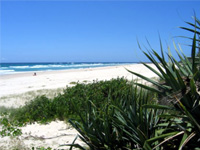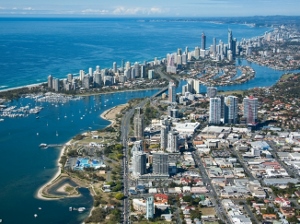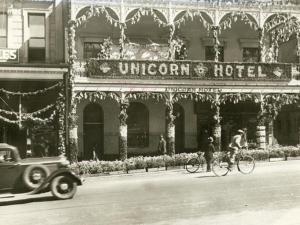
Airbnb under microscope as northern NSW eyes caps
Airbnb’s impact on northern NSW will be probed in the light of planned short-stay curbs and a 2018 study which found Byron Bay short lets were damaging local housing stock.
A dozen councils and Destination North Coast are taking part in a survey by Central Queensland University which aims to gauge community response to short stay across regions from Tweed and Kyogle to Tea Gardens and Hawks Nest.
It follows the university’s 2018 survey of 800 Byron Bay residents, which found that while 77 percent felt Airbnb had a negative effect on housing affordability, some 150 respondents reported enjoying the economic benefits of becoming hosts.
As councils eye policy changes in the light of planned state-wide short stay reforms, project lead Dr Tania von der Heidt says the new research is “all about evidence-based decision-making”.
“Airbnb, the largest, fastest-growing short-term holiday letting platform (STHL), particularly raises polarised opinions across the North Coast communities and is the subject of ongoing debate concerning affordable housing versus tourism development,” she said.
“Policymakers need to have comprehensive, reliable, and evidence-based information on their locations. Community members and traditional accommodation providers want to better understand the impacts of STHL in their residential streets, neighbourhood and local government areas.
“There is particular demand for comparable data sets across and between council areas to understand why different regions and even different towns within one shire might need different planning responses, or interventions, on STHL.”
The NSW government is looking to introduce its proposed curbs on the sector before the end of the year, with public consultation on draft plans wrapping up last week.
They include an industry code of conduct, a definition of short stay and the conditions under which properties can rented, mandatory fire safety requirements, and a register of rental premises – the latter condemned by Airbnb as “complex, costly and time-consuming”.
An option for individual councils to impose a letting cap of 180 days for non-hosted properties is also on the cards, a move described by peak body the Australian Resident Accommodation Managers Association as “draconian” for investor operators looking to make money on rental units.
“To seek leave for policy amendment, councils must demonstrate the community benefit of reducing the non-hosted STHL period,” said Dr von der Heidt.
“The local context must be analysed and explained, against indicators including social and economic impacts for the community in general, and impacted property owners specifically.
“To have a consistent supply-side approach to planning and policy for STHL operations across the whole region, rather than only coastal hotspots, will be beneficial for the multitude of stakeholders: destination marketers; general residents; Airbnb hosts; Airbnb guests; and, not least, administering councils.
“The research will provide benchmarking information to guide future decision-making around location-applicable regulation of STHL.”
According to the latest data from Destination North Coast, the region’s multiple tourist hubs are valued at approximately $12.5 million per day, tourism generating close to ten percent of regional jobs and supporting 7,000 businesses.

AccomNews is not affiliated with any government agency, body or political party. We are an independently owned, family-operated magazine.







